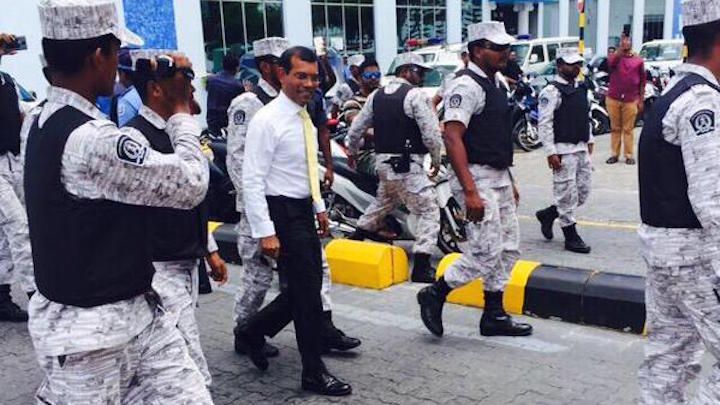Court holds hearing on Nasheed’s terror conviction as talks remain at a stalemate
The Supreme Court held today a second hearing into an appeal filed by the state over former President Mohamed Nasheed’s terrorism conviction. Today’s hearing, just the second since the appeal was filed nearly five months ago, comes in the wake of the opposition boycotting government-initiated all-party talks.

06 Mar 2016, 09:00
The Supreme Court held today a second hearing into an appeal filed by the state over former President Mohamed Nasheed’s terrorism conviction.
Today’s hearing, just the second since the appeal was filed nearly five months ago, comes in the wake of the opposition boycotting government-initiated all-party talks over the sentencing of leading politicians.
Nasheed’s lawyers urged the apex court to overturn the conviction, as recommended in September by a UN human rights panel that ruled Nasheed’s 13-year jail sentence politically motivated and illegal.
The former president was sentenced over the military detention of then-Chief Judge of the criminal court Abdulla Mohamed. The state argues Nasheed had ordered the judges’ “abduction” in January 2012.
Become a member
Get full access to our archive and personalise your experience.
Already a member?
Discussion
No comments yet. Be the first to share your thoughts!
No comments yet. Be the first to join the conversation!
Join the Conversation
Sign in to share your thoughts under an alias and take part in the discussion. Independent journalism thrives on open, respectful debate — your voice matters.




